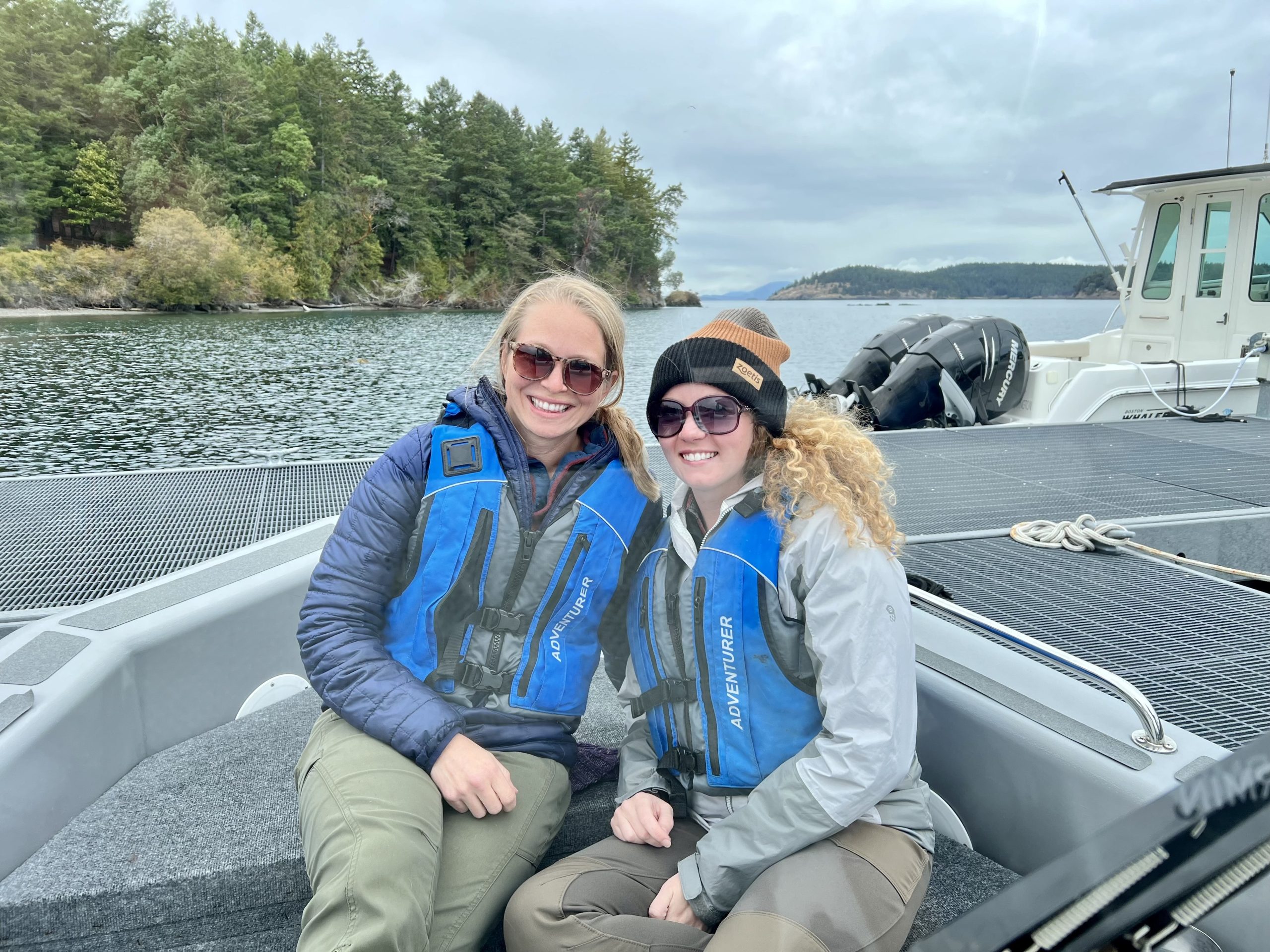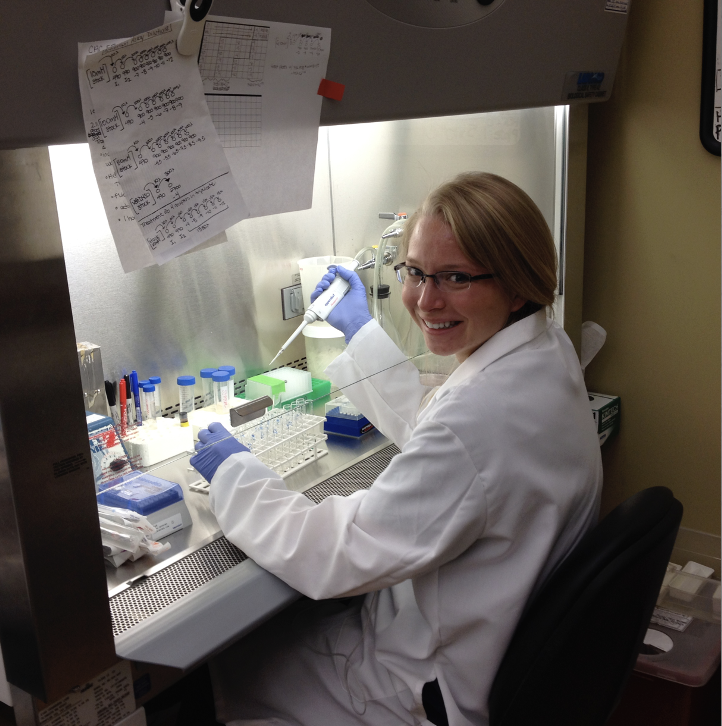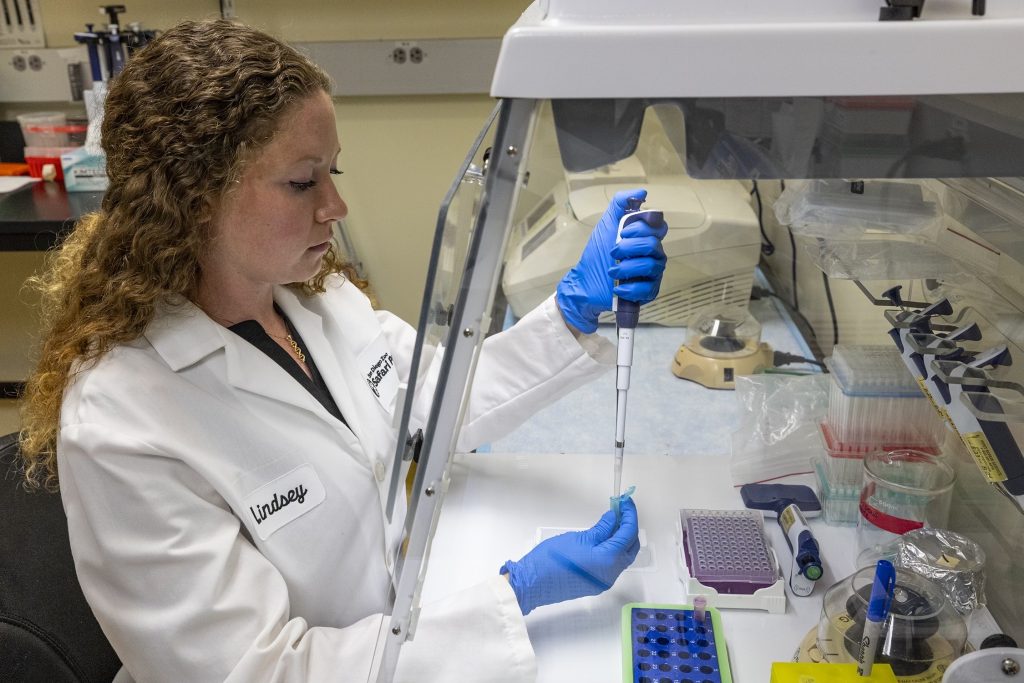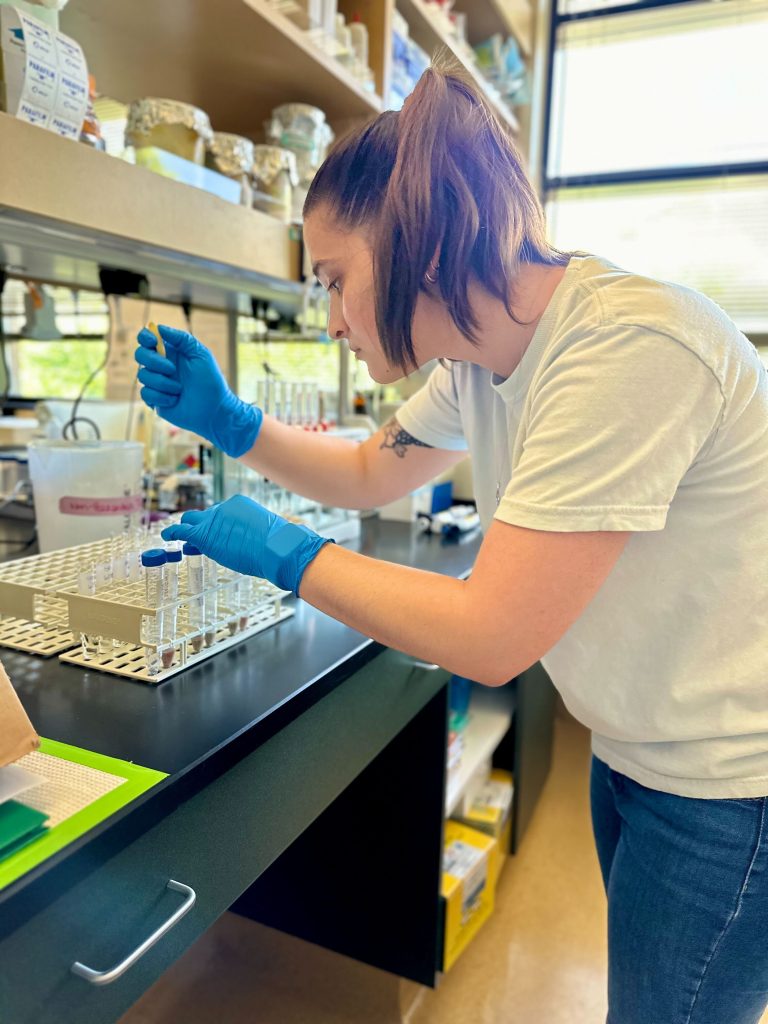
Rachel Felton always knew she wanted to work with captive wild animals.
“I was that kid on family vacations that always requested to go to the zoo everywhere we went, and my family would finally give in, which I think really fueled my love of wildlife,” Felton said.

After her undergraduate degree at Missouri State University, Felton participated in a fellowship in the San Diego Zoo Wildlife Alliance reproductive sciences lab. An internship and job at Dickerson Park Zoo during undergrad led her to the realization that she could do conservation research in a zoo setting, which led her to Mizzou animal sciences for her master’s degree. During her course work a job opened up at the San Diego lab. Felton’s Mizzou animal sciences advisors and Chris Tubbs, her supervisor at the San Diego lab and an adjunct professor at Mizzou, worked out a way for her to take the job, finish her course work for her master’s and complete her research at the zoo. During her time as a graduate student, she was a guest speaker for An_Sci 2010, Careers in Animal Sciences, where she inspired undergraduate student Lindsey Fallon, who is now her coworker in the San Diego lab.
“I went into undergrad knowing that I wanted to work with wildlife conservation,” Fallon said.
“Throughout my first year at Mizzou, I believed that I wanted to go into zookeeping, but I also hadn’t ruled out veterinary medicine as an option, as I was currently working as a vet tech at the time. It wasn’t until I continued taking a variety of animal sciences classes at Mizzou that that I realized I could even do research for conservation as a career. Specifically, taking reproductive physiology with Dr. Mike Smith made me fall in love with studying biology.”

Hearing Felton speak to her Captive Wildlife Animal Management class inspired Fallon to pursue a conservation science career and she worked with advisors Trista Strauch and Mike Smith to shadow in the San Diego lab for a week. Fallon was later selected for the San Diego Zoo fellowship, but due to the COVID-19 pandemic had to complete her fellowship during her graduate studies. While her master’s project focused on embryology in cattle, she knew she could translate the knowledge she was gaining to apply to exotic species in the future. At the end of Fallon’s internship in San Diego an employee left the lab and she was hired to fill that position as soon as she finished her master’s.
Fallon later spoke in the same Careers in Animal Sciences class, inspiring their current intern, Taylor VanDeVoorde, junior animal sciences student, to apply for the fellowship.
Together this team of Mizzou alumni work to measure hormones in fecal samples of zoo animals including exotic cats, rhinos and echidnas, to monitor their cycles and pregnancy. The team is currently completing a research project about how captive diets affect fertility in exotic cat populations, allowing VanDeVoorde to work on research as an undergraduate. The team is also branching out to work on genomic sequencing on wild animals using cutting-edge techniques. Their data helps animal managers make the best management decisions for the animals’ reproductive health.

While Fallon, Felton and VanDeVoorde learned technical lab skills during their time at Mizzou, they all credit their career success in part to the networking skills they learned and their helpful advisor in the captive wild animal management emphasis, Trista Strauch.
“She is the best advisor and mentor you could ask for,” said Felton. “She totally cares about every student and her heart is in it. She’s the glue that puts us all together.”
“One thing that helped me in my career development was learning how to reach out to people that are at a much higher level in their career than I am, and just get to know them and let them know my level of interest in what they’re doing,” said Fallon. “And I feel like if I didn’t learn that at Mizzou I wouldn’t have the job I have now.”
While many animal sciences students go on to vet school, Felton and Fallon want to encourage students to get creative about how to use their animal sciences degrees.
“Think outside the box,” said Felton. “Everything that we learned in animal science can be applied to an okapi, or a rhino or a tortoise. Don’t be afraid to be different in the careers you pursue.”
While there is a lot of lab work in their daily jobs, there is still variety in Felton, Fallon and VanDeVoorde’s days. VanDeVoorde got to see an ultrasound on an aardvark this summer, Fallon visited the coast of Washington to study a wild population of killer whales, and Felton got to help collect blood from wild California condors to test their lead levels.
“When we do get to go out and work with the animals that we’ve sampled in the lab it’s extremely rewarding,” said Fallon. “It reminds you why you’re doing what you’re doing.”